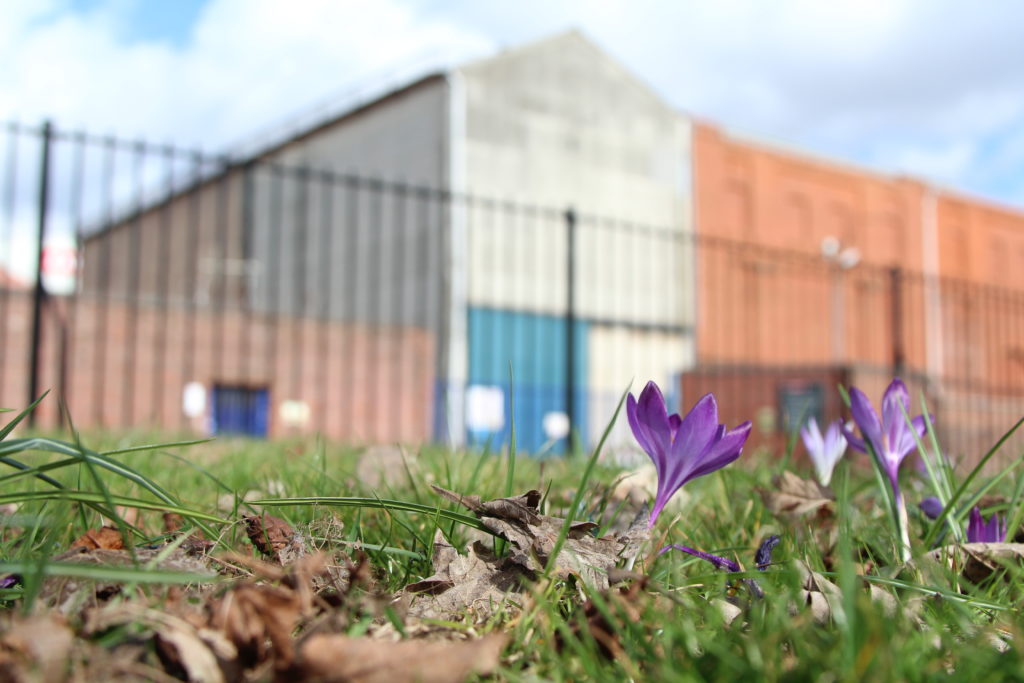
By James Kurtz, Global Outreach Commission
I found myself utterly unprepared for the hope I found in Norman MacKay.
I didn’t know what to expect. That’s probably a good thing, because I quickly found that any expectations would have been insufficient. The Wikipedia entry for Govan cites a “reputation for deprivation and poverty,” and I found myself utterly unprepared for the hope I found in Norman MacKay.
Govan is a neighborhood on the western side of Glasgow, Scotland. If you know the story of Chester, our southerly neighbor, you may find theirs quite familiar: The local economy was built on shipbuilding, and as Asia industrialized in their recovery from the Second World War, the western labor market couldn’t compete for the lessened post-war demand for vessels. As jobs dried up, those who could afford to move away did so, leaving behind those who could not. The dearth of jobs soon led to too-familiar cycles of poverty and addiction.
My own experience in similar contexts has often left me cynical: can these deep depths of human depravity ever be ascended? Is there meaningful and lasting hope? As Norman and I walked through the neighborhood where he grew up and now ministers, he pointed to a shuttered movie theatre and described sneaking in as a youth. He showed me what he called the worst street in Glasgow. He talked about the ministry challenges created by addiction, and how some well-meaning treatments are only adding to the problem. And yet, as he described these dark situations, his hope and confidence were just as persistent as his accent.
We went up to his office, the nerve center for the fledgling church he pastors, in anticipation of the Thursday evening Bible study. Attendees trickled in, and I began to understand how Norman maintains such hope. Sixteen people sat around the table that evening, and each person’s story demonstrated some measure of hope that could not be put to shame. Calling the group “diverse” would be a remarkable understatement. There were former addicts, current addicts, new Christians, not-yet Christians, and, on this particular night, I was the token American.
After tea, the study began. A few assorted Bibles were handed out, and when the passage was announced, I chuckled. Already, the sovereignty of God was plainly visible as I had finished memorizing this passage, Ephesians 2:1–10, just a week before taking the trip.
And you were dead in the trespasses and sins in which you once walked, following the course of this world, following the prince of the power of the air, the spirit that is now at work in the sons of disobedience—among whom we all once lived in the passions of our flesh, carrying out the desires of the body and the mind, and were by nature children of wrath, like the rest of mankind. But God, being rich in mercy, because of the great love with which he loved us, even when we were dead in our trespasses, made us alive together with Christ—by grace you have been saved—and raised us up with him and seated us with him in the heavenly places in Christ Jesus, so that in the coming ages he might show the immeasurable riches of his grace in kindness toward us in Christ Jesus. For by grace you have been saved through faith. And this is not your own doing; it is the gift of God, not a result of works, so that no one may boast. For we are his workmanship, created in Christ Jesus for good works, which God prepared beforehand, that we should walk in them.
Coming from an affluent church in a well-to-do neighborhood, I was humbled immediately by the abundance in inquiry. Nearly every remark through the discussion demonstrated a profound longing for understanding—a longing for understanding scripture for some, and a longing for understanding everyday life for others. The passage itself—a favorite of mine—offers both. It succinctly explains the gospel and systematically shreds each of our best natural arguments against it. But, in verse seven, Paul mentions the purpose of this grace by which we’ve been saved: “So that in the coming ages, he might show the immeasurable riches of his grace in kindness toward us in Christ Jesus.”
I understood, at that point, how Norman keeps his head up
Even in the present age, as I sat at the table, God had shown glimpses of his richness in kindness through the life experiences represented in the people around me. Some were parsing how they’ve been dead since birth, while others looked thankfully on their resuscitation from death to life. I understood, at that point, how Norman keeps his head up: he fervently believes that God raises people from the dead, and occasionally, he gets to see it powerfully happen.
Although I serve in the Global Outreach Commission, the privilege of visiting a partner is not particular. If you’re traveling abroad, consider a meal (or a Bible study) with partners we may have in the region. For more on these opportunities, contact the Global Outreach office at go@tenth.org or x240.
